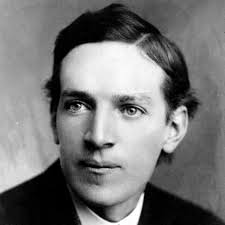The Jungle Page #5
The Jungle is a 1906 novel by the American journalist and novelist Upton Sinclair. Sinclair wrote the novel to portray the harsh conditions and exploited lives of immigrants in the United States in Chicago and similar industrialized cities.
It is very imprudent, it is tragic--but, ah, it is so beautiful! Bit by bit these poor people have given up everything else; but to this they cling with all the power of their souls--they cannot give up the veselija! To do that would mean, not merely to be defeated, but to acknowledge defeat--and the difference between these two things is what keeps the world going. The veselija has come down to them from a far-off time; and the meaning of it was that one might dwell within the cave and gaze upon shadows, provided only that once in his lifetime he could break his chains, and feel his wings, and behold the sun; provided that once in his lifetime he might testify to the fact that life, with all its cares and its terrors, is no such great thing after all, but merely a bubble upon the surface of a river, a thing that one may toss about and play with as a juggler tosses his golden balls, a thing that one may quaff, like a goblet of rare red wine. Thus having known himself for the master of things, a man could go back to his toil and live upon the memory all his days. Endlessly the dancers swung round and round--when they were dizzy they swung the other way. Hour after hour this had continued--the darkness had fallen and the room was dim from the light of two smoky oil lamps. The musicians had spent all their fine frenzy by now, and played only one tune, wearily, ploddingly. There were twenty bars or so of it, and when they came to the end they began again. Once every ten minutes or so they would fail to begin again, but instead would sink back exhausted; a circumstance which invariably brought on a painful and terrifying scene, that made the fat policeman stir uneasily in his sleeping place behind the door. It was all Marija Berczynskas. Marija was one of those hungry souls who cling with desperation to the skirts of the retreating muse. All day long she had been in a state of wonderful exaltation; and now it was leaving--and she would not let it go. Her soul cried out in the words of Faust, “Stay, thou art fair!” Whether it was by beer, or by shouting, or by music, or by motion, she meant that it should not go. And she would go back to the chase of it--and no sooner be fairly started than her chariot would be thrown off the track, so to speak, by the stupidity of those thrice accursed musicians. Each time, Marija would emit a howl and fly at them, shaking her fists in their faces, stamping upon the floor, purple and incoherent with rage. In vain the frightened Tamoszius would attempt to speak, to plead the limitations of the flesh; in vain would the puffing and breathless ponas Jokubas insist, in vain would Teta Elzbieta implore. “Szalin!” Marija would scream. “Palauk! isz kelio! What are you paid for, children of hell?” And so, in sheer terror, the orchestra would strike up again, and Marija would return to her place and take up her task. She bore all the burden of the festivities now. Ona was kept up by her excitement, but all of the women and most of the men were tired--the soul of Marija was alone unconquered. She drove on the dancers--what had once been the ring had now the shape of a pear, with Marija at the stem, pulling one way and pushing the other, shouting, stamping, singing, a very volcano of energy. Now and then some one coming in or out would leave the door open, and the night air was chill; Marija as she passed would stretch out her foot and kick the doorknob, and slam would go the door! Once this procedure was the cause of a calamity of which Sebastijonas Szedvilas was the hapless victim. Little Sebastijonas, aged three, had been wandering about oblivious to all things, holding turned up over his mouth a bottle of liquid known as “pop,” pink-colored, ice-cold, and delicious. Passing through the doorway the door smote him full, and the shriek which followed brought the dancing to a halt. Marija, who threatened horrid murder a hundred times a day, and would weep over the injury of a fly, seized little Sebastijonas in her arms and bid fair to smother him with kisses. There was a long rest for the orchestra, and plenty of refreshments, while Marija was making her peace with her victim, seating him upon the bar, and standing beside him and holding to his lips a foaming schooner of beer. In the meantime there was going on in another corner of the room an anxious conference between Teta Elzbieta and Dede Antanas, and a few of the more intimate friends of the family. A trouble was come upon them. The veselija is a compact, a compact not expressed, but therefore only the more binding upon all. Every one's share was different--and yet every one knew perfectly well what his share was, and strove to give a little more. Now, however, since they had come to the new country, all this was changing; it seemed as if there must be some subtle poison in the air that one breathed here--it was affecting all the young men at once. They would come in crowds and fill themselves with a fine dinner, and then sneak off. One would throw another's hat out of the window, and both would go out to get it, and neither could be seen again. Or now and then half a dozen of them would get together and march out openly, staring at you, and making fun of you to your face. Still others, worse yet, would crowd about the bar, and at the expense of the host drink themselves sodden, paying not the least attention to any one, and leaving it to be thought that either they had danced with the bride already, or meant to later on. All these things were going on now, and the family was helpless with dismay. So long they had toiled, and such an outlay they had made! Ona stood by, her eyes wide with terror. Those frightful bills--how they had haunted her, each item gnawing at her soul all day and spoiling her rest at night. How often she had named them over one by one and figured on them as she went to work--fifteen dollars for the hall, twenty-two dollars and a quarter for the ducks, twelve dollars for the musicians, five dollars at the church, and a blessing of the Virgin besides--and so on without an end! Worst of all was the frightful bill that was still to come from Graiczunas for the beer and liquor that might be consumed. One could never get in advance more than a guess as to this from a saloon-keeper--and then, when the time came he always came to you scratching his head and saying that he had guessed too low, but that he had done his best--your guests had gotten so very drunk. By him you were sure to be cheated unmercifully, and that even though you thought yourself the dearest of the hundreds of friends he had. He would begin to serve your guests out of a keg that was half full, and finish with one that was half empty, and then you would be charged for two kegs of beer. He would agree to serve a certain quality at a certain price, and when the time came you and your friends would be drinking some horrible poison that could not be described. You might complain, but you would get nothing for your pains but a ruined evening; while, as for going to law about it, you might as well go to heaven at once. The saloon-keeper stood in with all the big politics men in the district; and when you had once found out what it meant to get into trouble with such people, you would know enough to pay what you were told to pay and shut up.
Translation
Translate and read this book in other languages:
Select another language:
- - Select -
- 简体中文 (Chinese - Simplified)
- 繁體中文 (Chinese - Traditional)
- Español (Spanish)
- Esperanto (Esperanto)
- 日本語 (Japanese)
- Português (Portuguese)
- Deutsch (German)
- العربية (Arabic)
- Français (French)
- Русский (Russian)
- ಕನ್ನಡ (Kannada)
- 한국어 (Korean)
- עברית (Hebrew)
- Gaeilge (Irish)
- Українська (Ukrainian)
- اردو (Urdu)
- Magyar (Hungarian)
- मानक हिन्दी (Hindi)
- Indonesia (Indonesian)
- Italiano (Italian)
- தமிழ் (Tamil)
- Türkçe (Turkish)
- తెలుగు (Telugu)
- ภาษาไทย (Thai)
- Tiếng Việt (Vietnamese)
- Čeština (Czech)
- Polski (Polish)
- Bahasa Indonesia (Indonesian)
- Românește (Romanian)
- Nederlands (Dutch)
- Ελληνικά (Greek)
- Latinum (Latin)
- Svenska (Swedish)
- Dansk (Danish)
- Suomi (Finnish)
- فارسی (Persian)
- ייִדיש (Yiddish)
- հայերեն (Armenian)
- Norsk (Norwegian)
- English (English)
Citation
Use the citation below to add this book to your bibliography:
Style:MLAChicagoAPA
"The Jungle Books." Literature.com. STANDS4 LLC, 2025. Web. 10 Mar. 2025. <https://www.literature.com/book/the_jungle_272>.








Discuss this The Jungle book with the community:
Report Comment
We're doing our best to make sure our content is useful, accurate and safe.
If by any chance you spot an inappropriate comment while navigating through our website please use this form to let us know, and we'll take care of it shortly.
Attachment
You need to be logged in to favorite.
Log In